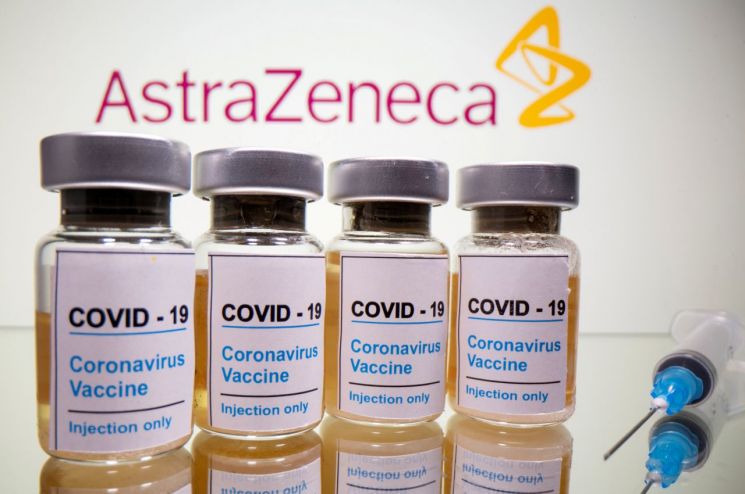![[이미지출처=연합뉴스]](https://i0.wp.com/cphoto.asiae.co.kr/listimglink/1/2021010414272998474_1609738049.jpg?w=560&ssl=1)
[이미지출처=연합뉴스]
[아시아경제 조현의 기자] The EU and AstraZeneca, which had been in conflict over the supply of Corona 19, retreated one step at a time. The EU has decided to lift restrictions on the export of vaccines to the UK, and AstraZeneca will supply an additional 9 million doses.
On the 31st (local time), the chairman of the EU Commission, Ursula Ponderrayen, said on Twitter, “AstraZeneca has decided to supply an additional 9 million doses of the vaccine, and the delivery time will be one week ahead of schedule.” He added, “We also decided to expand production facilities in Europe.”
With this, the EU has secured a total of 40 million doses of Corona 19 vaccine in the first quarter of this year. Although it is about 50% of the original contract (80 million servings), it can be interpreted as being conscious of the intense criticism from the international community such as the World Health Organization (WHO).
The conflict between the two sides was that AstraZeneca, headquartered in the UK, suddenly announced that it would reduce EU supply by 60% in the first quarter of this year, and said it would supply 2 million batches to the UK without a hitch within one week.
The EU raised suspicion that AstraZeneca was delaying its supply to the UK in order to give priority to supply, and said it would pull out a’prohibition of exporting vaccines produced in Europe’ and confirm whether the shortage was true. ‘.
Conversely, the British government, which is known to have reviewed the introduction of a system to prevent the export of vaccines to the EU, also stressed that there is no need to worry about a vaccine shortage as the EU retreated on that day. International Trade Minister Liz Truss said in an interview with local media such as the BBC that “we have received a written confirmation from the EU that there will be no disruption in the progress of the COVID-19 vaccine supply contract.”
As EU Commissioner Ponderrayen pledged in a phone call with British Prime Minister Boris Johnson, there will be no problem with the entry of vaccines produced by Pfizer and Bioentech into the UK, Truss said. “You will have enough vaccines to help other countries after completing the vaccination for the entire UK population,” he said.
![Ursula Ponderrayen, Chairman of the European Commission [이미지출처=EPA연합뉴스]](https://i0.wp.com/cphoto.asiae.co.kr/listimglink/1/2021020110154255007_1612142141.jpg?w=560&ssl=1)
Ursula Ponderrayen, Chairman of the European Commission [이미지출처=EPA연합뉴스]
The reason why the EU Commission even brought out a ban on export of vaccines is an analysis that it was a self-contained number that came out trying to evade responsibility for shortages. The EU Commission has received vaccines from all member states at once and supplies them to each country. However, when the volume of the vaccine is different, some member states have stopped vaccination, leading to a vaccination crisis. Because of this, the inoculation rate was significantly higher than in the UK or the US. According to the international statistics website’Hour World In Data’, the number of vaccinations per 100 people was 2.35 in Europe as of the 28th, lower than in the UK (12.33) and the United States (7.91).
EU Commissioner Von der Raien praised the closing of the conflict with AstraZenekawa as “a daily step forward in relation to vaccines”. As if conscious of the criticism of the shortage, he said in an interview with the German public broadcaster ZDF, “The new volume has increased by 30% compared to the previous one,” and “the goal of completing the vaccination for 70% of adults in Europe by late summer remains unchanged.”
Reporter Jo Hyun’s [email protected]
